#multiple drafts
Explore tagged Tumblr posts
Text
Moving intro to pinned post so bio is less cluttered
~ he/him, cis, biromantic asexual, engaged to @starlightprincess98, (Planning to get married February 14th 2026) born July 12th 1997 (listed the year so I don't have to update my age every year) ****
Platonic soulmates: @aflairforthemelodramaticc and @translesbianfoxgirl
**** Formerly known as **** @princesssparkle42 **** @jaydovesworld **** Other blogs include **** @ask-skybluecmc, if you want to do some MLP OC RP **** @phoenix-of-grandeur, if you want to talk about your favorite games or mine (Though I also do that on main) **** @phiction-of-grandeur, if you want to talk about your stories or mine (Again I do that on main) **** @ask-the-felicity-crew, if you want to RP between your OCs and mine or ask me questions that I will answer as mine. The characters may or may not know they are fictional depending on when in the timeline you ask them.
****
@ask-simon-devlyn, same as the Felicity Crew, but centered around the captain, Simon Devlyn. On this blog Simon knows he's fictional.
**** I love talking to people and making new friends! I'm also creating my own story series called Starbourne. Wanna be friends in the gaming multiverse? Here are my Friend Codes:
****
Steam: 111892045
****
Nintendo Switch: SW-5163-5533-6136 ****
Musical Fandoms:
****
Chrono Trigger
****
Undertale
****
EPIC
**** Show Fandoms: **** MLP **** Steven Universe **** The Owl House **** Amphibia
**** The Ghost and Molly McGee **** Sailor Moon **** Cardcaptor Sakura
****
Spongebob Squarepants ****
More later
**** Game Fandoms: **** Any RPG that features Mario (Such as Super Mario RPG, the Paper Mario series, or the Mario and Luigi RPG series) **** Any indie game inspired by Paper Mario (Such as Bug Fables or Born of Bread) ****
Undertale and Deltarune ****
In Stars and Time
****
Kirby
****
Hollow Knight and Silksong **** Zelda (mainly just watching other people play them) **** Pokemon (see Zelda) **** Might add more later **** Book Fandoms: **** Percy Jackson et al **** Amari **** Serafina **** Might add more later ****
Webcomic Fandoms
****
Homestuck
****
Down to Earth
***** Donation Links
****
Kofi
****
Patreon
****
PayPal
****
Book 1 of my series, Starbourne, is FREE!! For the other books please donate $6 per book to one of the aforementioned links. I'm planning on making this a series of 9, but currently working on book 2.
Doing one of those note things for motivation (or notivation because notes lol)
25 notes - I do the dishes and clean out the litter box (done, for now... But these are Sisyphean tasks)
50 notes - I clean up around the house (I did a little cleanup, might do more later)
100 notes - I do a little work on my book (it still needs editing before I can publish it and write the sequel, but I'll do some work on that when my PC stops crashing)
250 notes - I start working on book 2 (or work harder on editing book 1 if it still needs it)
500 notes - I participate in artfight (in the first July after it reaches this threshold. I doubt it'll get there by this month.)
1k notes - I start working on a video game in the Starbourne multiverse. A small one, like Undertale is to Deltarune. I'm calling it Saturn Robe which is an anagram for Starbourne, like Undertale is for Deltarune.
2.5k notes - I start working on my dream game, Starbourne. The one that's the reason I started writing in the first place. (If the small game isn't finished I work harder on that)
5k notes - I dedicate my time to taking care of myself/my partner/my family, and working on my dream game.
10k notes - I become a god in the Tumblrverse (this will not happen)
If you want to know more about Starbourne, check out my other blog @phiction-of-grandeur and my community for more details. My askbox is always open if you want to ask me something.
Here's the first book now:
And here's a newer version of the first book, with (hopefully) better writing. It's gonna be longer than the draft above.
Here's the book on AO3 as well ^^
#notivation#notes#motivation#please i need motivation to do the dishes#writeblr#starbourne#artfight#editing#indie game#small thing before the big thing#starbourne book 1#starbourne book 2#engagement#intro#intro post#friendship#relationships#oc rp#rp#ocs#my ocs#oc stuff#original character#draft#multiple drafts
2K notes
·
View notes
Text
The idea of the batkids scaring Bruce with “a new grandchild” to only show an animal is so funny to me, because imagine Bruce is so used to it that when Jason wants to introduce him to his new grandchild Bruce almost falls out of his chair when there’s an ACTUAL KID!
Dick: You’re a granddaddy now Brucie!!!
Bruce: WHAT?!? Who?? When??? How??? Actually don’t tell me how. Who is she??? When did she give birth???
Dick: What? No, meet my kid *holds up a cat* her name is biscuit and shes the love of my life!
—
Steph: Cass and I are adopting…
Bruce: Holy shit, actually???
Cass: Yes, it was a tough choice, but we want to adopt
Bruce: Do you need any help with paperwork and stuff? It’s kinda my thing. Also consider the fact that you might be too young.
Steph: Too young…?
Bruce: Yes, I mean you’re only in your 20’s, are you sure you can handle a kid?
Cass: Too young for an iguana?
—
Damian: It happened again, I have a kid.
Bruce: What do you mean AGAIN?!?
Damian: This is my second kid, duh
Bruce: Are you talking about goats?
Damian: Of course I am father
—
Tim: BRUCE YOU’RE GOING TO BE A GRANDFATHER!!!
Bruce: Tim I didn’t think I was going to have to tell you this again after the whole thing with Stephanie, but just kissing someone doesn’t get them pregnant
Tim:
Bruce: Is it a dog?
Tim: No it’s a tiger
—
Jason: I have something to tell you
Bruce(not looking up from his paperwork): Okay, what’s up?
Jason: I have a kid, I want you to meet your granddaughter
Bruce: I can’t possibly imagine what type of animal you’ve gotten, but I’d love to meet her
Jason: What the hell are you talking about?
Bruce (looking up to see an actual child): You actually have a kid????
Jason: Yeah, Roy and I thought it was time I adopted Lian
Lian: Hi Grandpa!!!
Bruce: I’m going to faint, grab me some ice will you?
#this has been sitting in my drafts for months now all because i didnt want to tag it#my adhd kicked in#i wrote it all in one go then decided i had better things to do than tags#then i reread it multiple times and decided therr are better things to do than tags#but its just so silly so im manning up and doing it!#here are my awful half alseep tags#that was it#bruce wayne#batman#jason todd#roy harper#damian wayne#tim drake#dick grayson#lian nguyen harper#jason is lians dad obviously#cassandra cain#stephanie brown#stephcass#dc comics#dcu#dc#batkids#man i love batman
3K notes
·
View notes
Text
Writing Prompt #12
Bruce is reading the paper when the pour of Tim's coffee goes abruptly quiet. It would be hard to pinpoint why this is disturbing if it wasn't for the way the soft, tinny sound the vent system in the manor makes cuts out for the first time since being updated in the 90s. The pour, Bruce realizes, has not slowed to a trickle before stopping. It has simply stopped. And there is no overeager clack of a the mug against the marble counter or the uncouth first slurp (nor muttered apology at Alfred's scolding look) immediately following the end of the pour.
Bruce fights the instinct to use all of his senses to investigate, and instead keeps his eyes on the byline of the article detailing the latest set of microearthquakes to hit the midwest in the last week. Microearthquakes aren't an unusual occurrence and aren't noticeable by human standards, which is why this article is regulated to page seven, but from several hundred a day worldwide to several hundred a day solely in the East North Central States, seismologists are baffled.
Bruce had been considering sending Superman to investigate under the guise of a Daily Planet article requested by Bruce Wayne (Wayne Industries does have an offshoot factory in the area) when everything had stopped twenty seconds ago. That is what he assumes has happened (having not moved a muscle to confirm) in the amount of time he assumes has passed. His million dollar Rolex does not quite audibly tick but in the absolute silence it should be heard, which confirms the silence to be exactly that—absolute.
While Bruce can hold his breath with the best of the Olympian swimmers, he has never accounted for a need to remain without blinking without being able to move one's eyes. Rotating the eyeballs will maintain lubrication such that one could go without blinking for up to ten minutes. But staring at the byline fixedly, he estimates another twenty seconds before tears start to form.
These are the thoughts Bruce distracts himself with, because he doesn't dare consider how Tim and Alfred haven't made a (living) sound in the past forty-five seconds. About Damian, packing his bag upstairs for school after a morning walk with Titus that was "just pushing it, Master Damian".
There is a knife to his right, if memory serves (it does). In the next five seconds—
"Your wards and guardian are fine, Mr. Wayne," the deepest voice Bruce has ever heard intones. For a dizzying moment, it is hard to pinpoint the location of the voice, for it comes from everywhere—like the chiming of a clocktower whilst inside the tower, so overpowering he is cocooned in its volume.
But it is not spoken loudly, just calmly, and when he puts the paper down, folds it, and looks to his right, a blue man sits in Dick's chair.
He wears a three piece suit made entirely of hues of violet, tie included. He has a black brooch in the shape of a cogwheel pinned to his chest pocket, a simple chain clipped to his lapel. Black leather gloves delicately thumb Bruce's watch (no longer on his wrist, somewhere between second 45 and 46 it has stopped being on his wrist), admiring it.
"You'll forgive me," the man says with surety. "Clocks are rather my thing, and this is an impressive piece." He turns it over and reveals the 'M. Brando' roughly scratched into the silver back. He frowns.
"What a shame," he says, placing it face side up on the table.
"Most would consider that the watch's most valuable characteristic." Bruce says, voice steady, hands neatly folded before him. Two inches from the knife. To his left, there is an open doorway to the kitchen. If he turns his head, he might be able to get a glance of Tim or Alfred.
He doesn't look away from the man.
"It is the arrogance of man," the man says, raising red eyes (sclera and all) to Bruce, "to think they can make their mark on time."
"...Is that supposed to be considered so literally?" Bruce asks, with a light smile he does not mean.
The man smiles lightly back, eyes crinkling at the corners. He looks to be in his mid thirties, clean-shaven. His skin is a dull blue, his hair a shock of white, and a jagged scar runs through one eye and curving down the side of his cheek, an even darker, rawer shade of blue-purple.
The man turns the watch back over and taps at the engraving. "Let me ask you this," he says. "When we deface a work of art, does it become part of the art? Does it add to its intrinsic meaning?"
Bruce forces his shoulders to shrug. "It's arbitrary," he says. "A teenager inscribes his name on the wall of an Ancient Egyptian temple and his parents are forced to publicly apologize. But runic inscriptions are found on the Hagia Sophia that equate to an errant Viking guard having inscribed 'Halfdan was here' and we consider it an artifact of a time in which the Byzantine Empire had established an alliance with the Norse and converted vikings to Christianity."
"The vikings were as errant as the teenager," the man says, "in my experience." He leans back in his chair. "I suppose you could say the difference is time. When time passes, we start to think of things as artistic, or historical. We find the beauty in even the rubble, or at least we find necessity in the destruction..."
He offers Bruce the watch. After a moment, Bruce takes it.
"The problem, Mr. Wayne, is that time does not pass for me. I see it all as it was, as it is, as it ever will be, at all times. There is no refuge from the horror or comfort in that one day..." he closes his hand, the leather squeaking. And then his face smooths out, the brief severity gone. He regards Bruce calmly.
"You can look left, Mr. Wayne."
Bruce looks left. Framed by the doorway, Tim looks like a photograph caught in time. A stream of coffee escapes the spout of the stainless steel pot he prefers over the Breville in the name of expediency, frozen as it makes its way to the thermos proclaiming BITCH I MIGHTWING. Tim regards his task with a face of mindless concentration, mouth slack, lashes in dark relief against his pale skin as he looks down at the mug. Behind him, Bruce can see Alfred's hand outstretched towards the refrigerator handle, equally and terrifyingly still.
"My name is Clockwork," the man says. "I have other names, ones you undoubtedly know, but this one will be bestowed upon me from the mouth of a child I cherish, and so I favor it above all else. I am the Keeper of Time."
"What do you want from me?" Bruce asks, shedding Wayne for Batman in the time it takes to meet Clockwork's eyes. The man acknowledges the change with a greeting nod.
"In a few days time, you will send Superman to the Midwest to investigate the unusual seismic activity. By then, it will be too late, the activity will be gone. They will have already muzzled him."
"Him."
"There is a boy with the power to rule the realm I come from. Your government has been watching him. The day he turned 18, they took him from his family and hid him away. I want you to retrieve him. I want you to do it today."
"Why me?"
"His parents do not have the resources you do, both as Batman and Bruce Wayne. You will dismantle the organization that is keen on keeping him imprisoned, and you will offer him a scholarship to the local University. You and yours will keep him safe within Gotham until he is able to take his place as my King."
This is a lot of information to take in, even for Bruce. The idea that there could be a boy powerful enough to rule over this (god, his mind whispers) entity and that somehow, he has slipped under all of their radars is as frustrating as it is overwhelming. But although Clockwork has seemed willing to converse, he doesn't know how many more questions he will get.
"You have the power to stop time," he decides on, "why don't you rescue him? Would he not be better suited with you and your people?"
"Within every monarchy, there is a court," Clockwork. "Mine will be unhappy with the choice I have made," he looks at Bruce's watch, head cocked. "In different worlds, they call you the Dark Knight. This will be your chance to serve before a True King."
Bruce bristles. "I bow to no one."
"You'll all serve him, one day," Clockwork says, patiently. "He is the ruler of realms where all souls go, new and old. When you finally take refuge, he will be your sanctuary." He frowns. "But your government rejects the idea of gods. All they know is he is other. Not human. Not meta. A weapon."
"A weapon you want me to bring to my city."
"I believe you call one of your weapons 'Clark', do you not?" Clockwork asks idly. "But you misunderstand me. They seek to weaponize him. He is not restrained for your safety, but for their gain."
"And if I don't take him?" Bruce asks, because a) Clockwork has implied he will be at the very least impeded, at worst destroyed over this, and b) he never did quite learn not to poke the bear. "You won't be around if I decide he's better off with the government."
"You will," Clockwork says, with the same certainty he's wielded this entire conversation. "Not because he is a child, though he is, nor because you are good, though you are, nor even because it is better power be close at hand than afar.
"I have told you my court will be unhappy with me. In truth, there are others who also defend the King. Together we will destroy the access to our world not long after this conversation. The court will be unable to touch him, but neither will we as we face the repercussions for our actions. I am telling you this, because in a timeline where I do not, you think I will be there to protect him. And so when he is in danger, even subconsciously, you choose to save him last, or not at all. And that is the wrong choice.
"So cement it in your head, Bruce Wayne," the man says, "You will go to him because I tell you to. And you will keep him safe until he is ready to return to us. He will find no safety net in me. So you will make the right choice, no matter the cost."
"Or, when our worlds connect again, and they will," his voice now echoes in triplicate with the voices of the many, the young, the old, Tim, Bruce's mother, Barry Allen, Bruce's own voice, "I will not be the only one who comes for you."
"Now," he says, producing a Wayne Industries branded BIC pen. "I will tell you the location the boy is being kept, and then I would like my medallion back, please. In that order."
Bruce glances down and sees a golden talisman, attached to a black ribbon that is draped haphazardly around the neck of his bathrobe, so light (too light, he still should have—) he has not felt its weight until this moment.
Bruce flips the paper over, takes the pen, and jots down the coordinates the being rattles off over the face of a senator. By his calculation, they do correspond with a location in the midwest.
"You will find him on B6. Take a left down the hallway and he will be in the third room down, the one with a reinforced steel door. Take Mr. Kent and Mr. Grayson with you, and when you leave take the staircase at the end of the hallway, not the elevator."
The man gets up, dusts off his impeccably clean pants, and offers him a hand to shake.
"We will not meet again for some time, Mr. Wayne."
Bruce looks at the creature, stands, and shakes his hand. It feels like nothing. The Keeper of Time sighs, although nothing has been said.
"Ask your question, Mr. Wayne."
"I have more than one."
"You do," Clockwork says. "But I have heard them all, and so they are one. Please ask, or I will not be inclined to answer it."
"What does this boy mean for the future, that you are willing to sacrifice yourself for him?"
There is a pause.
"So that is the one," Clockwork says, after a time. "Yes. I see. I should resolve this, I suppose."
"Resolve what?"
"It is not his future I mean to protect," the man says. "It is his present."
"You want to keep him safe now..." Bruce says, but he's not sure what the being is trying to say.
"I am not inclined," Clockwork repeats, stops. His expression turns solemn, red eyes widening. In their reflection, Bruce can see something. A rush of movement too quick to make heads or tails of, like playing fast forward on a videotape. "Superman reports no signs of unusual seismic activity. With nothing further to look into, you let it go in favor of other investigative pursuits. You do not find him, as you are not meant to. He stays there. His family, his friends, they cannot find him. His captors tell him they have moved on. He does not believe them, until he does. He stays there. He stays there until he is strong enough to save himself."
Clockwork speaks stiffly, rattling off the chain of events as if reading a Justice League debrief. "He is King. He will always be King. He is strong, and good, and compassionate, and he is great for my people because yours have betrayed his trust beyond repair. He throws himself into being the best to ever Be, because there is nothing Left for him otherwise. We love him. We love him. We love him. My King. Forevermore."
The red film in his eyes stall out, and Bruce is forced to look away from how bright the image is, barely making out a silhouette before they dull back to their regular red.
"I am not inclined," Clockwork says slowly, "To this future."
"Because of what it means in the present," Bruce finishes for him. "They're not just imprisoning him, are they."
"They will have already muzzled him."
Clockworks is right in front of him faster than he can process, fist gripping the medallion at his neck so tight he now feels the ribbon digging into his skin.
"Unlike you, Mr. Wayne," and for the first time, the god is angry, and the image of it will haunt Bruce for the rest of his life, "I do not believe in building a better future on the back of a broken child."
"Find him," the deity orders, and yanks the necklace so hard the ribbon rips—
Clack!
"sluuuuurp!"
"Master Timothy, honestly!"
"Sorry Alfred!"
#i feel like I'm going to reread this and want to add other stuff#but I also just want to post it and get it out there#fun fact i scribbled a bunch of lines down at 2am bc i didn't want to forget them#im bad at multiple drafts#my writing#dp x dc#dp x dc au#dp x dc prompt#dp x dc crossover#danny phantom#batman#i live to make everybody dramatic#but also i subscribe to a world where clockwork doesn't know how NOT to be dramatic#lol he's a ghost from all of time he doesn't know how to speak to humans and tailor it to the century let alone the decade#and his favorite little girl who calls him clocky loves how he speaks so#he doesn't need to change for nobody#nor feels inclined to#also I feel like as god he's way more inclined to threaten to get what he wants than like...be vulnerable#jazz: let's unpack that#clockwork: we never do#jazz: are you saying that because it's true or because that's what you want to be true?#clockwork: ...#also I cannot take credit for BITCH I MIGHTWING#wish i could#that is cash money right there#shoutout to 11thsense
2K notes
·
View notes
Text
(botw2 - totk rewritten)
a rough version for some diary entries (with some rough pictures, unsure if it would be shown like this or if it would be -current- zelda or someone else reading it)






(edit: i should start adding that im now putting everything for this rewrite on @totk-rewritten from now on, since, while its not all done yet and still changes, the biggest stuff i feel pretty confident with now)
#ganondoodles#art#zelda#tloz#ganondoodles rewrites totk#botw2#ganondorf#i cant tell whether this is suitable for a diary entry#or if its cringe beyond comprehension#i havent written alot of stories so im afraid im not that skilled in that regard#(idk how much thinking about stuff counts jdkfndkjn)#hopefully theres not too many mistakes- read over it multiple tiems but writing something like this is very different to-#-social media posts .__.#i repainted it all three times and then did some sloppy lineart bc i just cant stand doing lineart#but it would never get done otherwise#and its a rough draft either way#sorry about the watermark- i seperated them into two per picture and it was too risky not to put anythign there#uuuugh i dont want to work tomorrow .... but i gotta so im gonna head to bed now :(
369 notes
·
View notes
Text
DC X DP PROMPT #25
Amity Park is seen as a tourist trap, like the whole town. No one in Amity is aware of this. All tourists think the townees are just really into the act.
One (or multiple) super families have decided to go on a Classic American Road Trip™. Which means they simply must visit all the tourist traps they see!
While in Amity, on a guided bus tour, there is a ghost attack. While the other passengers are thrilled with the commitment to the bit, the superfamily starts to become suspicious.
#dc x dp#dpxdc#dats it#i have drafts yall#and the college semester just finished >:)#i have some written out versions of my prompts in the works#you can use any family btw#i didnt specify because i couldnt choose lol#all of the options would work very well#if multiple families are going i expect maximum hijinks#like they all planned these roadtrips independently#im personally partial to either the superman fam or martians#for personal reasons#amity park is a tourist trap#to tourists
1K notes
·
View notes
Text
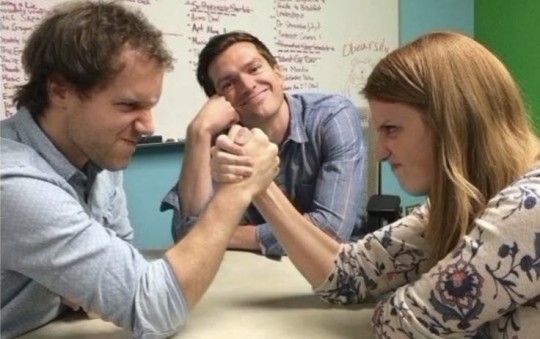

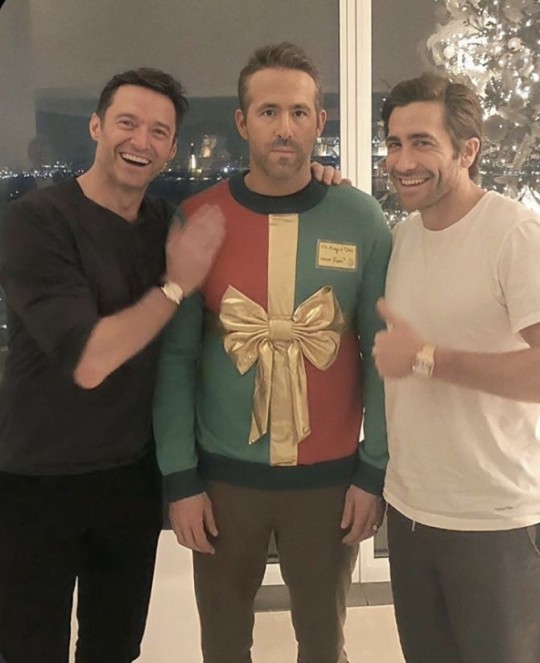


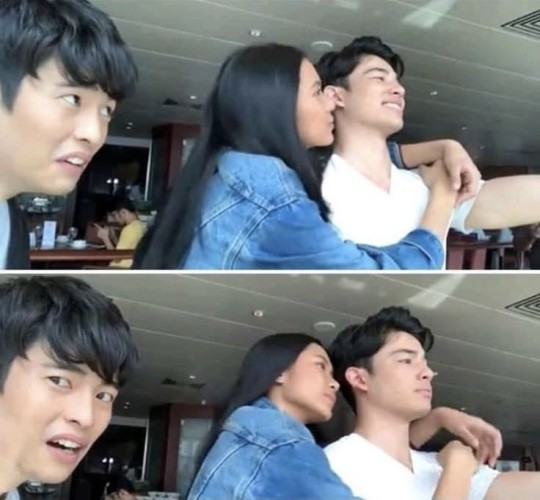
You, your F/O, and your third-wheeling bestie.
Do NOT Interact: Pro//Ship, adults who self ship with minors, and real people shippers.
#self ship#self shipping#safeship#self ship prompt#art prompt#oc x canon#yumeship#yumeshipping#yumedanshi#yumejoshi#💞 Prompt: Multiple F/Os#❤️ Prompt: Romantic F/O#💛 Prompt: Platonic F/O#��� Prompt: Self Ship#👤 Prompt: Self Insert#sry for dying again guyssss#i dont have much time to dedicate to extra stuff like this blog anymore#ive got some stuff in the drafts ill try to post through the week#but no guarantees aaaaa
288 notes
·
View notes
Text

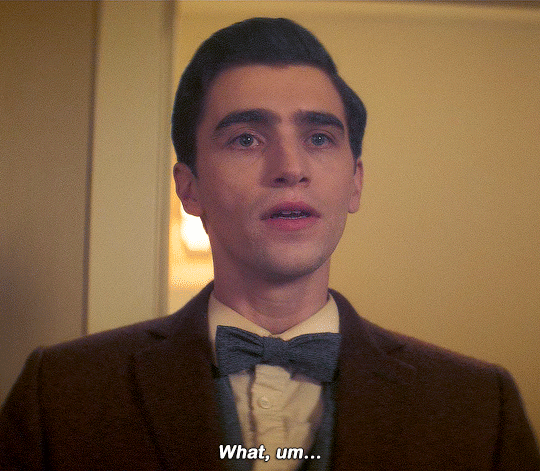
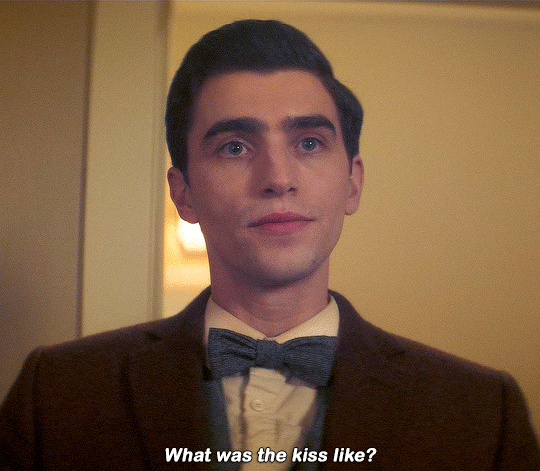
DEAD BOY DETECTIVES (2024)
1.05 - The Case of the Two Dead Dragons
Or,
Edwin. I saw that.
#the second gif is more damning than the first one tbh#if the universe doesn’t let him smooch his homie even a little im going to have to start booing and jeering#dead boy detectives#dbda#edwin payne#george rexstrew#payneland#my gifs#I’m a thousand percent sure this exact gifset exists out there#multiple versions of it probably. bc come on. gestures at all of that.#but I don't think l've seen it myself and I don't have it on my blog so. sorry#also fun fact while this was in my drafts l'd initially captioned it 'dead boy detectives (2016)'#because it’s apparently 2016? do I think it’s 2016 currently?#not sure what kind of typo that was but brain did reboot on time! embarrassing
865 notes
·
View notes
Text
Voice of the Paranoid
Other Designs: Cheated/Hunted/Cold/Contrarian/Smitten/Opportunist/Skeptic/Stubborn

Another design finalized! My goal with Paranoid's outfit was to make it as aggravating as possible for him :)
Here's a demonstration how I imagine his chant working:
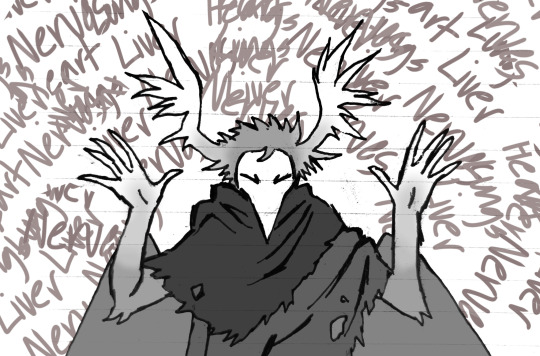
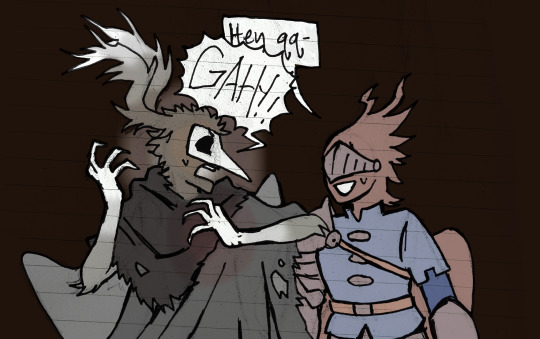
Below the cut is the usual - ref without any text + the first time I ever drew Para! Fun fact, he was the first voice I ever drew!!


#i know it doesnt look like his design ever changed much#but theres been multiple drafts of him with longer hair!#but in the end the desire to keep drawing his hair like scraggly baby bird fluff won out#voice of the paranoid#voice of the hero#my art#stp#slay the princess#stp voices
658 notes
·
View notes
Text
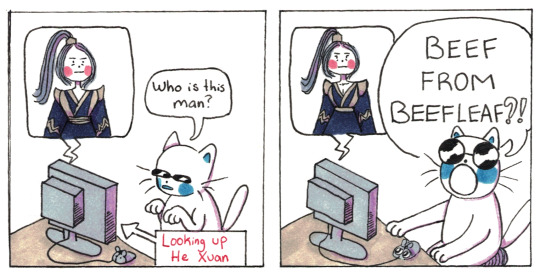
"What do you mean their name isn't Beef?"
(for @moondal514)
#TGCF#he xuan#I only know TGCF through having multiple people try and explain it to me + watching S1 of the animated series.#And fandom osmosis of some characters and plot points.#So I had a genuine 'A platypus? *PERRY* the platypus?' moment when doing research for this prompt.#My method for drawing novel characters is to read their description + personality and make a few drafts from there.#Sometimes I get curious and look up official art on a wiki. Ensue the: “huh who is this (sees the female form) I KNOW WHO THIS IS”#Anyways this is actually just a warm up. An unprecedented part 2 comes tomorrow.#Because the journey of “How *would* I draw he xuan?” took me on a wild journey that nearly drove me into madness.#Spoilers: its not how I drew HX in this comic. It's more...on brand for this blog. Lets leave it there. Everyone gets a 24 hour warning.#Thank you Moondal514 for pushing me into the deepest waters on this one. I am forever changed.
2K notes
·
View notes
Text
I am absolutely begging people to stop treating nazism as their big, bad blorbo caricature they can just invoke when they're mildly irritated about people who (they think) have Bad Opinions.
Nazism is not just "any time a Bad Guy does Bad Things." Nazism is not your final jojo stand you can invoke to win discussions or debates. It is a real life ideology that is intrinsically linked to the radical antisemitism it espouses and ignoring that is fundamentally harmful to the point of being radically antisemetic.
Since this is on-topic, I've been reading People Love Dead Jews (I am on chapter two), and I think downplaying nazism is absolutely part of de-emphasizing and reprioritizing antisemitism to make it about everything else but the antisemitism. When nazism is everything, then it can't be fundamentally antisemetic. You won't have to acknowledge that jews are the primary target of nazis and nazism if nazis are everything else. It's not a coincidence, especially seeing how many jews people call nazis. This is part of the dead jew that people love - if your eye is turned away from the fact that jews both exist still and are affected by violence and oppression, you get to say, "the jew is dead!".
Regardless, you will never live in a world without us**
עם ישראל חי
#jumblr#jewish politics#antisemitism tw#personal thoughts tag#i wrote this post after waking up and seeing someone do exactly this (invoking n-zism like it's their jojo stand)#and i drafted it because i don't know if this post will even be helpful#and then i saw MULTIPLE more people do it like twelve hours later so i guess i am going to post this#stop making n-zism your blorbo. it's absolutely not required to do that to make a point#also that book is gutting me. it's been really hard to get through things like that (what dara horn talks about)#especially about anne frank. i can barely unpack all my feelings about it. she (and all jews) just feel like family. *my* family#it feels even more personal now. i used to be paranoid that i wouldn't bee good at adopting the jewish family as *mine*#but the opposite is true. these are *my* people - as close to me as family. and jewish history didn't just 'happen to /them/'
311 notes
·
View notes
Text
The Weight of Stories in the Infinite Realms
Danny has always known ghosts were shaped by their obsessions. That’s Ghost 101. The more powerful the emotion, the stronger the ghost. Desire. Rage. Guilt. They don’t just linger—they define.
But legends? Legends are something else entirely.
Ghosts are remnants of the people they were. Even the worst of them—the ones twisted beyond recognition—still have that core, that personhood. You can track their past, their cause, their tether to the living world.
Legends don’t have that.
Legends are built from belief.
Danny’s seen it before, how stories spread through the Infinite Realms like wildfire, how whispers in the dark can manifest into something real. It’s not just the ghosts of the dead who take shape in the Realms—it’s the things that never lived in the first place. The things that shouldn’t exist but do because people believe in them.
Slenderman. The Black-Eyed Children. The Vanishing Hitchhiker. Stories people made up and told so many times that the Infinite Realms listened.
Danny once stumbled across the Headless Horseman galloping through the Ghost Zone like he belonged there. He wasn’t the ghost of some long-dead soldier—he was the story of the Horseman, made real. Danny half-wonders if there are multiple versions of him, shaped by different retellings. Maybe one with a pumpkin head, maybe another wielding a fiery sword.
Because that’s the thing about legends. They evolve.
And that’s what makes them dangerous.
Normal ghosts are predictable. You can track their origins, find the moment of their death, figure out what makes them tick. But legends? How do you fight something that exists only because people think it does?
You can’t reason with a legend. You can’t find its unfinished business and solve it. You can’t lay it to rest. It doesn’t want rest. It doesn’t want anything—it just is.
That’s why La Llorona was different.
Danny and Tim went to Mexico expecting a ghost. A vengeful spirit. Maybe a lost soul. But when Danny reached for his ghost sense, it flickered uncertainly, confused, like even the Realms weren’t sure what she was.
Because she wasn’t just a ghost. She was a story given form.
Her obsession wasn’t personal—it was collective. It was every mother who had lost a child, every whisper of warning passed down through generations, every child who grew up afraid of hearing her cry. Her entire existence was built on belief.
And you can’t exorcise belief.
Danny’s fought a lot of things, but how do you fight something shaped by the weight of a million voices? By centuries of fear? How do you kill a story when the world itself is determined to keep telling it?
…Maybe you don’t.
Maybe, instead of fighting a legend, you change the story.
#danny fenton#danny phantom#tim drake#dc x dp#infinite realms lore#mexican folklore#urban legends#la llorona#went to mexico for a week and came back with multiple drafts of tim and danny getting involved with mexican folklore#its so fun creating lore for the infinite realms
344 notes
·
View notes
Text
And if I say Mac grew up equating love to cigarette burns and absent fathers and getting told to toughen up, that Mac doesn’t understand love that isn’t conditional, love without equal parts hate or distaste, that never in his life has Mac understood earnest love, that even though Dennis isn’t trying to, he often ends up re-confirming this idea in Macs head, that love is hatred, that-
#sorry got shot with the rpg before I could finish my sentence#it’s always sunny#iasip#it’s always sunny in philadelphia#source: iasip#it’s always sunny in philly#mac mcdonald#macdennis#dennis iasip#iasip headcanon#iasip dennis#mac iasip#iasip mac#I have something to admit which is that this is a draft and also that I haven’t seen the Abbott ep yet#I’ve been meaning to get around to it and get back to posting on here in general but such is life yk#I had a lot of insane shit go on thag stopped me from writing completely#and also#just kind of consuming media as a whole#anyways Mac and your twisted fucked up perceptions of love you will always be special to me#it ain’t much but it’s earnest#there are two wolves inside of me#the one that wants Mac to get gentle soft love that changes his perceptions completely#and one that loves the moral complexity and grey area that iasip specialize in#always Sunny is weird like that in the sense that you somehow end up equal parts rooting for them and wanting their downfall#multiple spelling errors in the tags that I refuse to fix because it would be too much of a headache to retype them all#so just pretend you don’t see them or read through them please and thank you <3
248 notes
·
View notes
Text

i'm not sure if this post was meant as a joke or not but i don't think it matters-- it has over 5k notes and most of them seem to be taking it seriously. but the idea that you can do a specific action to stop having intrusive thoughts and if u just keep doing it and the thoughts will go away :) is just. that's just a compulsion. that's a repetitive behavior you feel driven to do to reduce anxiety. there are ways to cope with/treat ocd but giving urself new compulsions isn't one of them, that will just make it worse even if it's reassuring in the moment (which is another part of ocd- it reduces anxiety for a moment and then the anxiety comes back, which is what reinforces the obsession-compulsion loop.
and if this was meant as a joke or satire, it's clearly ineffective because it's being taken seriously, which is just adding to the problem of bad ocd advice posts, and leaving it circulating is irresponsible. and if it wasn't meant as a joke, it's still harmful despite coming from a good place, and leaving it circulating is still irresponsible.
#text#and tbf this tip might be helpful for non-ocd anxiety! but it is Actively Harmful if you do have ocd#from the drafts#<- bc its been like a week and ive thought about this post multiple times a day every day. it distresses me#ocd#obsessive compulsive disorder#ocd tag
150 notes
·
View notes
Text
i actually did try to come up with a no kira lawlight are normal people who meet and date normally au once but although that was markedly less tragic it did not end, like, better
#re: the multiple people asking if ive ever considered a happy ending#i tried.. i did..#rookposting#let me dig it up it's not writing i thikn it was an unposted twitter draft#i got quite far into it and then went this is a soap opera and it will never end im calling it#death note
309 notes
·
View notes
Text
sometimes i read my drafts and go "aw man when's the next part coming out" girl you wrote it
258 notes
·
View notes
Photo





Und Rebeccas Geist schwebte unsichtbar durch das Haus und kam mir nah. Und da war mir klar, ich entgeh' ihr nur, wenn ich weiß, was hier g e s c h a h .
#rebecca#rebecca das musical#rebecca vienna#mrs danvers#mrs de winter#daphne du maurier#willemijn verkaik#nienke latten#musicaltheatreedit#musicalgifs#european musicals#mine#*g#well guys this is it#the final rebecca/will!danvers gifset that's been sitting in my drafts#it's been a blast#thank you so much for validating my brainrot#it's far from over but i feel like i've giffed everything i possibly could#multiple times#still........... end of an era
175 notes
·
View notes